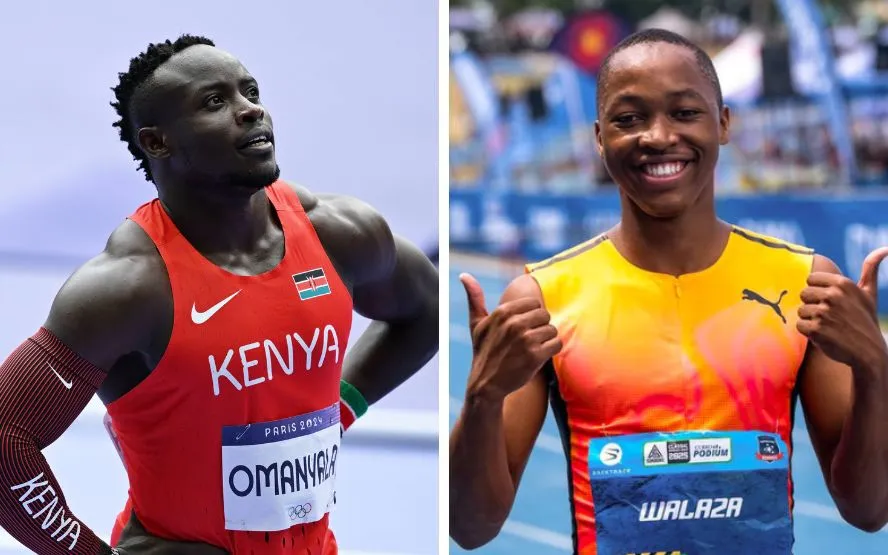When you think of Kenyan athletics, marathoners and legendary distance runners naturally spring to mind. Yet, in 2025, a new narrative is sweeping across tracks not only in Nairobi, but far beyond. At its core roars Ferdinand Omanyala, the nation’s fastest man and a continent-wide symbol of possibility for young athletes. His electrifying performances and leadership have brought Kenya’s sprint relays back to the world stage after four decades and are reshaping perceptions for Africa’s next generation of sprinters.
Kenya’s historic return to the world stage
In a weekend that will echo in the annals of Kenyan athletics, the men’s 4x100m relay team—Boniface Mweresa, Ferdinand Omanyala, Meshack Babu, and Steve Onyango—found themselves rewriting history at the World Athletics Relays in China. After years in the distance-running limelight, Kenya now qualified for the World Championships in the men’s 4x100m, recording a sensational time of 38.51 seconds. The joy of this achievement rippled from the track in China to the hearts of millions back home, marking the first time since 1983 that Kenya will be represented in this event at the global showpiece.
Much more than just a statistic, this feat signified decades of patience and perseverance. The Kenyan quartet ran a national record and did so in dramatic fashion, anchoring second in their heat, barely edged out by Belgium’s national record performance. For Kenyan athletics, the result was not only qualification, but a revitalized sense of national pride.
Omanyala’s pivotal role and passionate plea
Behind Kenya’s leap forward is the fierce, driven presence of Ferdinand Omanyala. Already Africa’s fastest man, Omanyala embodies the values of determination and ambition—both on and off the track. After historic qualification was secured, his jubilant words underscored the achievement, yet his focus swiftly shifted to the team’s next, even bigger challenge: competing in Tokyo’s World Championships and not just participating, but making every second on track count.
Omanyala’s appeal to the Kenyan government was as heartfelt as it was pragmatic. He urged for increased support, especially in the form of dedicated training camps and financial resources. For him, historic qualification is just the beginning. “I mean, now it’s just getting down to business. I’m sure the country has seen, so they need to give the boys the opportunities financially and whatever we want to ask for,” Omanyala pleaded. Preparation, after all, is the bridge between potential and greatness. “Especially the camps, the training camps, we need to be given that because the world championships, to be sure, is not going to be a walk in the park.”
| CASINO | BONUS | INFO | RATING | |
|---|---|---|---|---|
|
bonus
Daily 25% bonus on your deposits!
See 6 Bonuses
|
info
Curacao 1668/JAZ Generous casino bonuses |
|||
|
bonus
Daily 99 KES sports offer boosts your game!
See 3 Bonuses
|
info
BK 0000696 PG 0000392 Fast cashouts |
|||
|
bonus
Claim 1 free spin for signing up, win up to KSH 1,000!
See 3 Bonuses
|
info
PG 0000422 Games from top providers, rewarding welcome bonus & VIP program |
|||
|
bonus
Welcome Bonus up to 18,000KES
See 17 Bonuses
|
info
Curacao OGL/2024/225/0601 Lots of exciting bonus features |
Bayanda Walaza and the ripple effect across Africa
The influence of Omanyala reaches far beyond Kenya’s borders. South Africa’s rising star Bayanda Walaza, a double world U20 champion, openly acknowledges Omanyala’s impact in shaping his own career. Walaza, who himself shattered barriers with a world-leading 9.99 seconds in 2025, has often found wisdom and inspiration in his interactions with Omanyala during competitions in South Africa.
Walaza exemplifies the new wave of African sprinters drawing lessons from established icons. “It has to be Omanyala because most of the time he usually comes to South Africa and competes in a few races there,” Walaza shared, emphasizing the tangible mentorship and exchange of knowledge that drives his evolution. “So, most of the time, I get to be close to him, I usually try by all means to get whatever secrets that he has to also build who I am.”
Growing a culture of sprinting success
The dynamic between Omanyala and Walaza points to something larger—a cultural shift in African sprinting. For decades, narrative and infrastructure favored distance running across much of the continent. Now, inspired by trailblazers like Omanyala, the region’s fastest youth are setting goals over 100m and 200m, showcasing their talent on the world’s greatest stages.
In this new paradigm:
- Kenyans once famed for their endurance are now finding their place among the sprinting elite,
- the success of one athlete becomes a catalyst for many,
- and young talents across Africa look not just to international idols, but to their own continental stars for inspiration.
Jamaica’s relay woes and the shifting world order
Every triumph has its contrasts. While Kenya celebrated its historic qualification, perennial relay powerhouse Jamaica endured a weekend to forget. Consecutive baton handoff disasters at the World Athletics Relays spelled heartbreak, leaving their 4x100m men—featuring Tokyo Olympic 100m silver medalist Kishane Thompson—relying on global rankings for a slim chance at Tokyo World Championships qualification.
Day one’s miscue saw the exchange between Julian Forte and Johan Blake collapse. Day two was even more gut-wrenching, as Forte pulled a hamstring mid-race, tripped, and fell before even reaching Blake with the baton. Not only did this deny Thompson a chance to run, it cast uncertainty over the nation’s qualification, with only two ranking spots left worldwide after 14 other teams clinched their berths.
This reversal for Jamaica, coupled with Kenya’s rise, is a compelling reminder of the unpredictable, ever-shifting nature of global athletics. It’s a world where past dominance is no guarantee and where new forces, driven by hunger and vision, can redefine the hierarchy.
Inspiring a new era in Kenyan and African athletics
What stands out about this Kenyan achievement and Omanyala’s journey is the transformative potential it represents for the next generation. Kenya’s sprint quartet, fresh from the accomplishment of a national record and historic qualification, serve as living proof that with belief, rigorous preparation, and the right support, the perceived boundaries of African sprinting can be stretched even further.
The baton, in every sense, is being passed anew: from legends to fresh faces, from endurance to explosive speed, and from inspiration to realization. Omanyala’s mission is now clear—to nurture and fuel these dreams with all the resources and energy he can muster, hoping that the path he’s charted becomes a highway for countless others.
Looking forward to Tokyo and beyond
The road to the World Championships will be demanding. Omanyala’s voice rings with both pride and caution—it is one thing to qualify, another to compete with the best. But with every stride, Kenya’s sprinters are not only running for medals; they are running for history. Their progress has ignited the hopes of a generation, beckoning national support and continental aspiration.
Chronicling these moments, we see more than times on a scoreboard—we witness the evolution of a sporting culture, the growth of a community of athletes, and the undeniable power of inspiration. For Kenya, for Omanyala, and for Africa’s rising sprinters, the relays in China were only the starting pistol; the finish line is still being dreamed into existence, one stride at a time.










